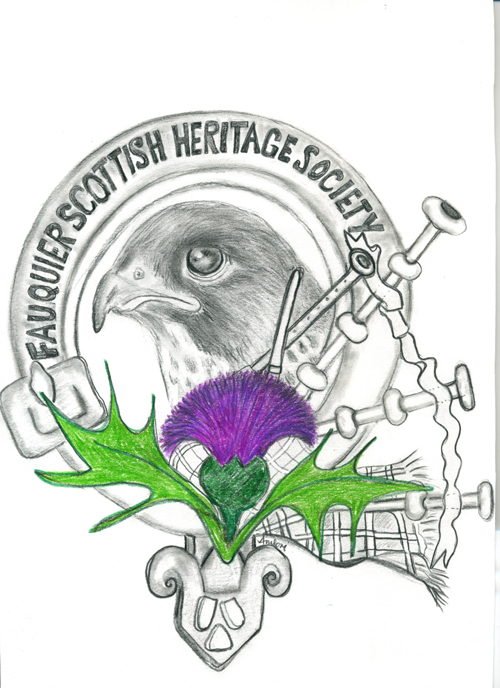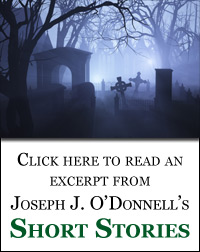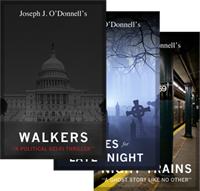 ED- For all our writers who follow our magazine, we are excited to present Publicist Sarie Morrell for them. Sarie how did you get started in this business?
ED- For all our writers who follow our magazine, we are excited to present Publicist Sarie Morrell for them. Sarie how did you get started in this business?
SM- I pretty much grew up in the world of publishing. My father, best-selling thriller author David Morrell, published his award-winning first novel, First Blood, in 1972 when I was 6-years-old. At the time, I was too young to comprehend that my father was a writer. It wasn’t until several years later, when I was able to read well, that I happened upon a magazine article about my father and really became aware of what he did for a living in addition to being a professor of English at the University of Iowa.
I remember coming across a clipping on a coffee table during a family gathering, and with great indignation saying “What’s this? I didn’t know my Dad was a writer! Why didn’t anyone tell me?” The answer from my aunt with a shrug of her shoulders: “We thought you already knew…” His work was such a part of our life I guess nobody felt the need to actually sit me and my brother down and explain it. On reflection it was a pretty funny moment.
Books were always a huge part of our life. Reading was encouraged in our household, and there were literally thousands of books from every genre to pick from. Both my brother and I were advanced readers at a young age and read voraciously – mostly suspense, thrillers and horror.
Later, discussions about plot variations, characters and storylines, became commonplace dinner table talk amongst our family, though my dad would never discuss what he was writing, or let anyone read the manuscript until he was comfortable with the direction of the book. He never wanted to dilute the story he was building in his mind. And we never talked about it outside of the home. Now, when I visit their home, he will print out manuscripts for me to read, if he is at the point of wanting to share the work. I relish this treat. And I am always touched by his reaction – he is so humbled when I ask if he has anything for me to read, as though he expects that I wouldn’t want to. He delivers me the box, I read and make notes, and we eagerly discuss any suggestions I have. I usually read at night, so the next morning I find him eagerly waiting for my pages of notes in the margins of the manuscript, though his work is so clean usually they are just plot questions or suggestions. My mother also does the same thing, though she and I don’t read the same notated manuscript. These are treasured memories for me.
Throughout my life I’ve seen firsthand and been a part of what an author invests of his/herself to create a novel. The ecstasy of a good day’s work. The discouragement when the words won’t come. The elation upon completing the last sentence and shipping the final manuscript off to the editor (then the ensuing nervousness and the big panicky question – what do I work on now?). The sheer boredom and pressure involved in meticulous reviewing, revising, re-revising and proofing, the stress over wondering how the public and reviewers will react to the book, and the exhaustion of nationwide author tours. This is my life both personally and professionally.
When I entered university, there was no question that I wanted to get my Bachelor of Arts degree in English, concentrating on modern fiction. This was challenging, as I attended the same university where my father taught – I knew these professors, had known them my whole life, and they pushed me hard. I even took several classes of my father’s, though was graded by one of his graduate students. I received an excellent education.
As graduation closed in the big question came up. What to do with this degree? Naturally, I thought of publishing. I went to New York City on a business trip with my father, met his editor, and checked out the editing side of it – which didn’t appeal to me at all. It felt so removed from the end product that the author was working so hard to put into people’s hands. Once editorial is done with the book, that’s it. It was then that I decided upon publicity. It felt so natural – I understand authors, and the huge personal and emotional investments they put into each novel. This wasn’t just another commodity, there was a person who took a chance and spent a year of their life to get a story on page for the world to see. It is the ultimate form of self-exposure, for oftentimes you are a part of what you write about. I felt an extreme desire to help authors promote what they had created.
Upon graduation I sent letters of recommendation from professors with a cover letter to several publishing houses. Two weeks later, I was called to interview at Random House. Within a week I was living in New York City and working in the publicity department of Random House. Six months later I was promoted, and moved to the West Coast publicity offices of Random House, where I worked on all imprints except for paperbacks. The most surreal moment came when I was working in New York, and would deliver the daily newspapers to the head of Random house, going up a winding staircase which held copies of all the important books Random house had published. There, on the shelves, was a selection of several of my father’s books which had been printed in paperback by a division of Random House. It felt so surreal. To be delivering these newspapers to the head of the whole publishing firm who had no idea who I was, or that I was related to one of their authors. (As a side note, the person whose job I took over was the son of another famous author…)
ED- Tell us the name of your company and a little about it.
SM- The name of my company is Sarie Morrell Author and Book Promotions. My primary client is my father, David Morrell, and I take on one or two additional authors/books per publishing “season”, usually balancing a larger project with a smaller one (defined as a campaign to augment what the publisher is doing). Typically I am hired by the author, though I have also been hired by publishers. I can tailor a campaign to help an author at every budget level, if needed.
ED- What type of writing do you represent?
SM-I specialize in mysteries, thrillers and suspense through my company, but in my career I have worked on every possible genre of book. As well, I have public relations and marketing experience which has proved valuable in helping me with my business.
ED- Can you tell us about the authors that you represent and the events that you work with to publicize their work?
SM-Recent clients include David Morrell, Robert Liparulo, Gayle Lynds, M.J. Rose, David Dun, Richard Matheson, Christopher Forrest, The International Thriller Writer’s Organization premiere ThrillerFest event in Phoenix, ITW’s Thriller Anthology, Mike Leonard, and more.
At Random House I had the privilege of working with a wide array of authors, as well, working at a special book release party for Kirk Douglas (such a gentleman in person), a movie party for the book RUSH, escorting Wallace Stegner to book signings, as well as a host of many other magnificent authors. These are just a few memories.
Meeting Wallace Stegner was amazing; I spent several days with him and his charming wife, along with his editor, Sam Vaughan, a wonderful man who took me under his wing when I first started at Random House and whom became a mentor to me. At the end of each day, as I distributed clippings to editors, he would invite me into his office, where he always had a kind word, a suggestion, and a few minutes of pleasurable talk. What a pedigree of authors he had worked with! And there was always a jar of marshmallows on his desk to snack on. Later, we discovered that his son and daughter-in-law were in Iowa City at the time and lived just blocks from my parent’s house. When I was working at Random House’s West Coast publicity offices, he always made a point to call and meet up with me for a short dinner or drinks when he was in town.
One of Wallace Stegner’s famous short stories called The View from the Balcony is set in a frat house overlooking the zoo in the community park in Iowa City. The story has a focal point about hearing the lions roar, and there really was once a zoo that had lions (I remember them as a child, though they eventually closed the zoo). It seems we had the same Alma Matter – The University of Iowa. I was crushed when I heard that he was killed in an auto accident several years after I met him. I also had the privilege of meeting Budd Schulberg (though not working with him), and answering the phone with Julia Child on the other end asking for her publicist.
To publicize an author’s work, if I am starting prior to publication, my work gets started before the ARC’s are printed, sometimes as much as 9 months or more before actual publication date. It is crucial for authors to understand that publicity starts months before the ARC’s are printed or the actual books hit the shelves.
First, I work closely with the author to determine what I refer to as the “platform” for their book – the selling point which becomes the anchor for the entire campaign. Sometimes the authors don’t even realize what their platform is. It can be like analysis; I spend a great deal of time working one-on-one with my authors, discussing ideas, brainstorming. The best campaigns are those which are collaborations between me and my client. I find it fulfilling for the author, and myself.
I am not a full-time email publicist (though I do email work with them); most of my work gets done by phone calls with the client, asking questions, coming upon with ideas, having “aha” moments. I don’t just write a release, print some mailing labels, book some events at stores and hope for the best. I am known for my “out of the box” thinking. A few years back, for my father’s book CREEPERS he and I, along with Nanci Kalanta who assists with the web portion of our campaigns, created a whole new way of promoting books through the internet, called viral marketing. Articles were written about what we had done with this. That is over now; the mold was set and patterned by others after us, so I am continuously working to create new and fresh ideas.
For example, several years ago (just as one small example), I was coordinating a major author tour for Gayle Lynds (The Last Spymaster). The main character of the book is known for her signature Jaguar. As Gayle and I were talking one day, we decided it might be a new approach to have an author appearance at a Jaguar dealership in her area (Gayle loves Jaguars). I contacted the local Jaguar dealership, and was able to work with the owner and manager to coordinate a book signing at the dealership, the benefit of which also allowed the dealership to bring in their clients to see the new line of Jaguars, and we were able to expose Gayle to a whole new audience of potential readers. Later, a blurb about this appeared in a Jaguar publication. Publicity is networking – finding unique ways to partner an audience with an interest.
For David Dun, whose book The Black Silent heavily featured scuba diving, we used this platform the hook up with the largest scuba online dealership in the country, and booked a signing at their store, as well as sold books through their site.
For one of my father’s books called The Protector, we worked closely with Emerson Knives, which creates all of the knives for military and police (the old adage about never taking a knife to a gun fight is not true…but we’ll save that story for another time). On the cover of the book was an embossed reproduction of an Emerson knife, which was also featured heavily in the book as used by the main character. It turns out that avid knife collectors, just like any other collectors, will buy things related to their passion, even if it isn’t the actual object. So we booked my father at knife conventions and shows, and sold books at the Emerson Knife booth, where my father was there to autograph them.
Things like these don’t always happen this way, but there is always something to work with that is fresh.
ED- Your father, David Morrell, is a New York Time Best Selling author. Can you tell us a little about him and his works?
SM-David Morrell is the award-winning author of thirty books, including the New York Times bestsellers Creepers and Scavenger. He holds a Ph. D. in American literature from Pennsylvania State University and was a professor in the English department at the University of Iowa until he gave up his tenure to devote himself to a full-time writing career. Co-founder of the International Thriller Writers Organization and creator of Rambo as well as the classic Brotherhood of the Rose spy trilogy, he is considered by many to be the father of the modern action novel. His The Successful Novelist: A Lifetime of Lessons about Writing and Publishing discusses what he has learned in his three-and-a-half decades as an author. His work has been translated into twenty-six languages.
He has also written a series of illustrated fiction with Marvel Comics entitled Captain America: The Chosen; as well as numerous short stories.
ED- How has your father been an influence on your career?
SM-My father has been a tremendous influence on my career, as he was the catalyst which pulled me into the world of publicity. We have an excellent personal and professional relationship, and can easily separate the two. Business calls are business. But I can say that we both get a “high” from the brainstorming and coming up with new ideas, and we really enjoy working together.
 ED- Please tell us about your latest endeavors and the new authors that you are promoting.
ED- Please tell us about your latest endeavors and the new authors that you are promoting.
SM- I have been working primarily with my father’s projects since late 2009, including promoting the paperback of his novel The Spy Who Came for Christmas, and the rerelease of The Hundred-Year Christmas (nominated for the 1984 World Fantasy Award), which author Stephen King hailed as “an enchanting fairy tale”. Due to overwhelming requests for this rare and much-loved novella, published over twenty-five years ago, Morrell partnered with publisher David Hinchberger of Overlook Connection Press to create a new version of Morrell’s novella, featuring all new color and black and white drawings by artist Cortney Skinner, commissioned exclusively for this 25th anniversary volume of the book.
I had to take time off recently because my 14-year-old daughter was diagnosed with a rare form of pediatric bone cancer in October 2008, and passed away unexpectedly in August 2009 following 10 months of treatment.
ED- How is your representation compared to the styles of similar services offered?
SM-I only take on a few clients at a time, and I work very closely with them – not like the publicity machines at the publishing houses where one publicist may be working on a minimum of 50 clients per month. They work really hard, and it is difficult to give each author a great deal of attention. They usually grateful for the additional help, and I always make it a point to call and introduce myself and explain what I am doing so that they can benefit from the extra work the author has hired me to do. I don’t want any surprises for them, or for them to feel as though the rug is being pulled out from under their feet.
If an author wants a “hands-off” approach, meaning that they don’t want to be involved very much with the campaign and just let it play out, then I may not be the best match for them. In my experience, though, the authors I have worked with appreciate that I can “talk the business” in a way very few other publicists can – I grew up with an author, and publishing will always be a part of my life. Most clients like the fact that I understand the “behind the scenes” emotions of writing, and we enjoy working closely and creating an excitement, building a new energy for the book that may have been lost to them during the endless process of actually getting the book completed.
My goal is to provide unique, individualized attention, and no two campaigns are ever the same. Of course certain timeframes are always followed, but each campaign, like each book, follows a different course, aside from the usual writing of the press kits and booking tours. I even strive to create unique, engaging press kits that will attract the reviewer’s eye, and give them a little more than what is typically in a publishing house press kit.
 ED- Are you presently looking for new authors?
ED- Are you presently looking for new authors?
SM-Yes, I am open to looking at new authors to start on for the mid to late 2011 season. Remember, if an author is interested in hiring a publicist, he or she should be in touch about a year prior to publication date to determine availability as well as to see if there are openings. Because I work so closely with my authors, and only work with a few at a time, authors should contact me well in advance. I also should add that before I take on any client, I must read a copy of the manuscript first, to make sure that it is a good “match” for the both of us. This is also important as I cannot create a proposal or publicity plan without having read the material in advance.
ED- How can aspiring young authors contact your firm?
SM-By email at snmorrell@earthlink.net, then I can be in touch via phone.
ED- Sarie, your work is an important part of the life of many authors and a sure way to realize their dreams. We wish you much luck and ask that you remember us in promoting your authors in the future. As Thrillers, Horror, and Suspense are the facets in my own writing I will personally look to hear more about you. We thank you for your time with us, and your contributions to the literary marketplace.
Please share the story on Facebook, or donate to support our efforts!


















.jpg)

























